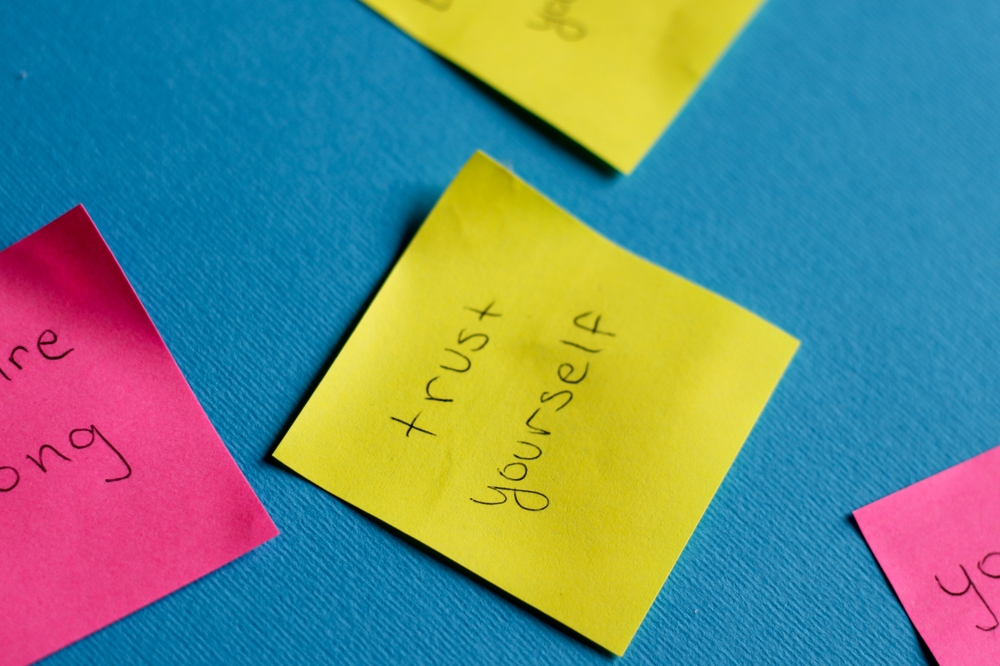As we go through the motions of daily life, it’s tempting to listen to our inner critic’s constant commentary. Negative self-talk, or the constant stream of self-criticism, destroys our sense of value and robs us of happiness. This issue is brought to light by Jennifer Mulholland and Jeff Shuck in their book “Leading With Light: Leadership Best Practices for Clarity, Confidence, and Fulfillment in the Workplace,” which stresses the ubiquitous character of negative thinking.
“We are thinking beings, so thinking happens whether we like it or not,” Mulholland observes. “That inner critic, at stages of our lives, can be a lot louder than we want it to be.”
Negative self-talk, which is based on learned habit and societal conditioning, is frequently motivated by fear and insecurity. However, identifying this pattern is the first step toward breaking free from its grip.
Practical steps towards self-kindness
Combating negative self-talk necessitates a holistic approach that emphasizes self-compassion while challenging old mental habits. Mulholland argues for putting negative thoughts in perspective and encouraging people to counter self-criticism with positive thinking.
“Balancing negative thoughts with positive thoughts isn’t just helpful—it often leads you closer to the truth,” she says.
It is equally important to investigate the causes of negative thoughts and their underlying motivations. Individuals can break the cycle of self-denigration and reclaim agency over their mental environment by asking probing questions and evaluating the value of their thoughts.
Rethinking resolutions: managing worry as an unhealthy habit
Why not prioritize mental and physical wellness in the pursuit of self-improvement? Shuck suggests thinking of anxiety as an addictive behavior that requires your attention and practice.
“While other people are trying to work out more or give up alcohol, say like, ‘I’m gonna give up worrying,'” Shuck remarks. This shift in viewpoint reveals the insidious nature of negative thinking and emphasizes the importance of purposeful action.
Shift your focus: the power of your environment
Sometimes a change of environment is all that is required to break free from the grasp of pessimism. Engaging in mindfulness activities or spending time in nature might bring much-needed relief from unwanted thoughts.
“The moment we recognize we’re having negative self-talk, it’s almost like we could put that on the shelf for a bit and change our focus to something that we’re grateful for in the moment,” Mulholland adds.
The effect of self-perception on others
Beyond personal well-being, fostering self-kindness ripples outward, influencing our interactions with others. Shuck highlights the reciprocal nature of self-perception and the need for self-compassion in developing empathy and connection.
“The world doesn’t benefit when we think less of ourselves,” Shuck states. “Unless we can find a way to have to talk to ourselves like we would talk to the people we love in our life, how are we going to make a difference in the people around us?”
Accepting grace during difficult times
During the ebb and flow of life, moments of struggle are unavoidable. Allowing yourself grace and compassion during stressful circumstances is critical for resilience and self-care.
“If your kid was sick or your lover was sick, you would tend to them with more gentleness and help them slow down. That’s what our thinking needs,” reflects Mulholland.
Nurturing self-kindness is a challenging process, but the rewards are enormous. Individuals can engage on a journey of self-discovery and healing by questioning negative self-talk, reframing resolutions, and accepting grace, developing a stronger connection with themselves and the world around them.










